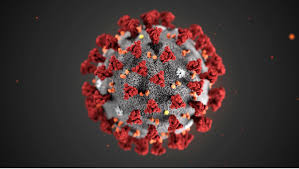Coronaviruses are a large family of viruses with proven pathogenic properties that can spread between humans or animals. A number of coronaviruses are known to cause illnesses in humans ranging from the common cold to more serious conditions. The last of the recently discovered coronaviruses causes the disease COVID-19.
What are the symptoms of the COVID-19?
The most common symptoms of COVID-19 are fever, fatigue and dry cough. However, in 17 percent of cases of infection with COVID-19, serious symptoms occur with the development of respiratory failure. Older people, as well as people with somatic diseases such as arterial hypertension, heart disease or diabetes, are more likely to have a severe infection. The fatality rate is about 2%.
How does the virus spread?
Covid-19 is a disease that can easily spread from person to person. The virus can spread to other people through small droplets released from the mouth and nose when an infected person sneezes or coughs. At the same time, these drops fall on surrounding objects and surfaces. Other people can become infected first by touching such objects or surfaces and then by touching their eyes, nose or mouth. For this reason, it is very important to be at a distance of more than 1 meter from the patient and to wash hands before touching the face.
What are the ways to prevent COVID-19?
Disinfect your hands regularly with an alcohol-based product or wash them with soap. Soap and alcohol solutions are among the most effective means of killing viruses. Avoid touching your eyes, nose and mouth with your hands as much as possible. Hands touch many surfaces. Viruses can remain on the inanimate surface for 4 to 12 hours. For this reason, it is recommended that you wash or disinfect your hands before touching your face.
Cover your mouth or nose with the inside of your elbow or a tissue when you sneeze or cough. Throw away the paper towel immediately after use.

